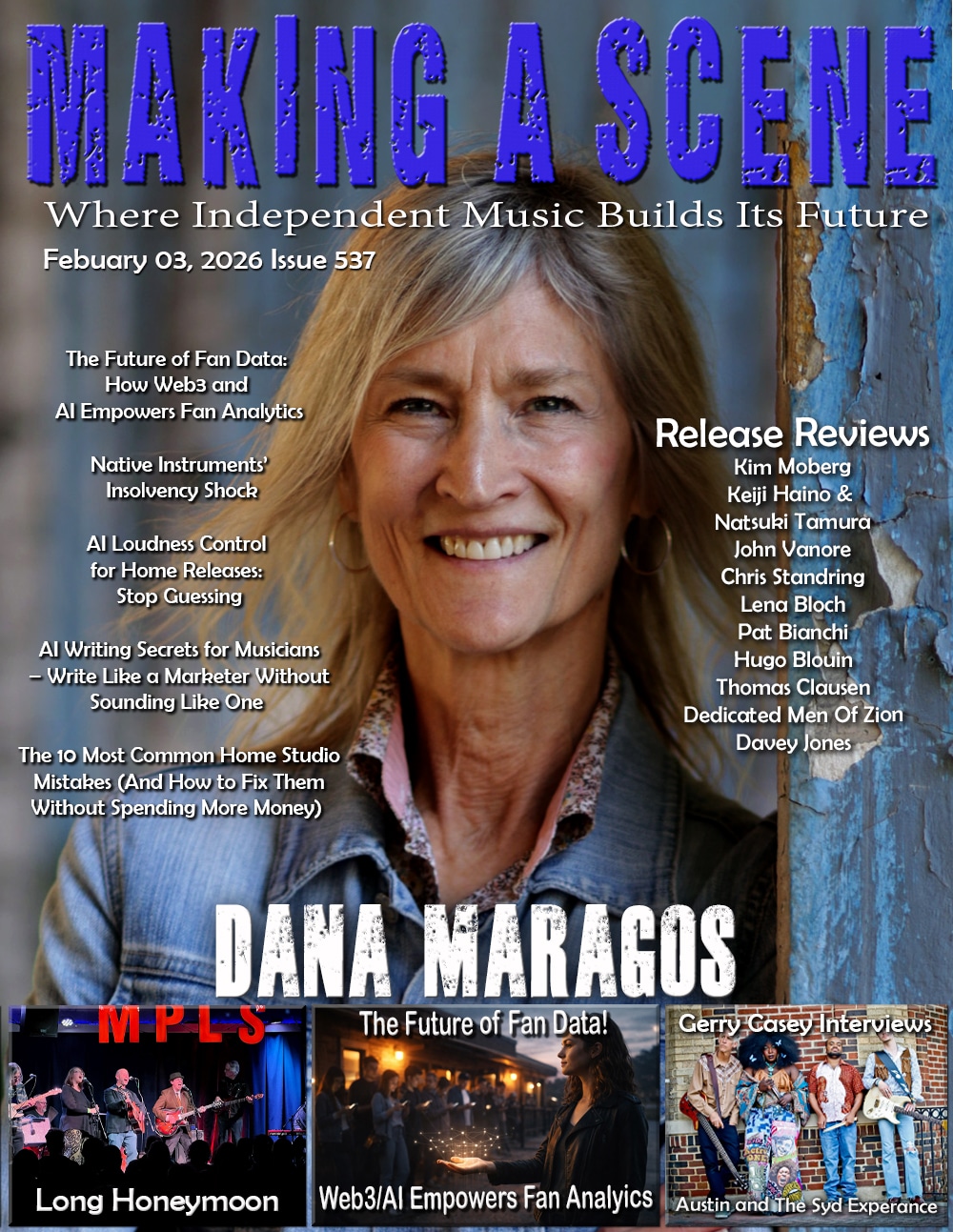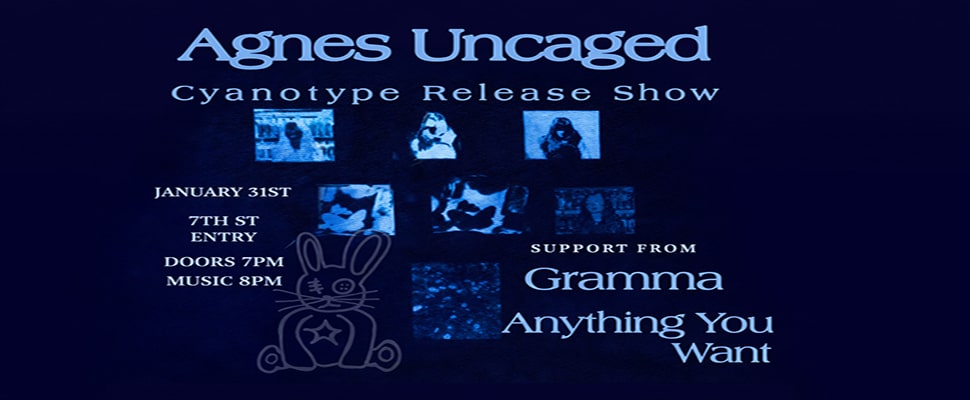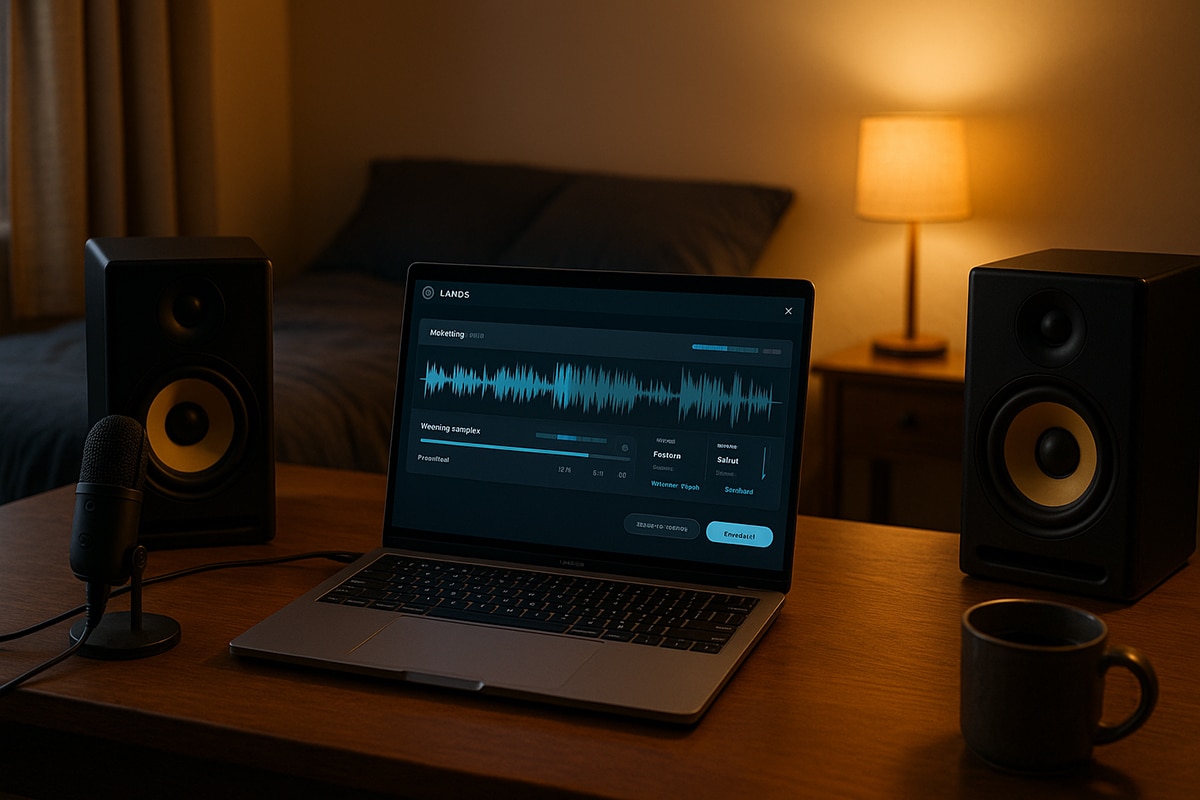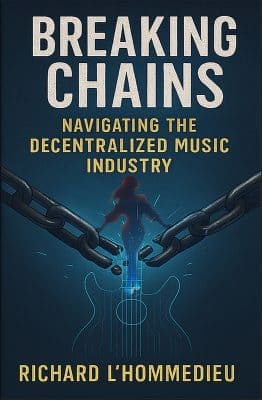The Birth of AI in the Studio – Early Tools and Experiments
Making a Scene Presents – The Birth of AI in the Studio – Early Tools and Experiments
When you hear people talk about “AI in music” today, it can sound like something brand new—like this strange, futuristic force that just showed up to take over studios and replace musicians or engineers. The truth is, AI has been part of the recording process for years. It just didn’t have the flashy “AI” label back then. It was quietly helping musicians get better results, often without them even realizing they were using artificial intelligence.
In fact, if you’ve ever uploaded a track to an online mastering service or cleaned up a noisy vocal take with modern plugins, you’ve already worked with early forms of AI in the studio. These tools weren’t there to replace your skills or creativity. They acted more like assistants—listening to your music, making intelligent adjustments, and helping you get closer to the sound in your head.
The Game-Changer: AI-Powered Mastering
One of the biggest breakthroughs came in 2014 with the launch of LANDR. Before LANDR, mastering was often an expensive and mysterious process for independent musicians. A professional mastering engineer could bring magic to your track, but that magic came at a price—one that was often out of reach if you were working on an indie budget. LANDR changed that by offering algorithmic mastering online.
Here’s how it worked: you’d upload your final mix to the LANDR website, and instead of running it through a static preset, the platform would listen to your track. It analyzed the dynamics, EQ balance, loudness, and even the genre to decide what changes to make. Then it applied compression, EQ, limiting, and other adjustments in a way that was tailored to your music. This was very different from slapping on a one-size-fits-all preset. These were “smart presets”—presets that could think.
For indie artists, this was a massive shift. You no longer had to settle for a flat, unpolished mix just because you couldn’t afford a mastering session. Suddenly, you could have a clean, professional-sounding master ready for Spotify, Apple Music, or even radio play—all from your bedroom.
Cleaning Up the Sound: Intelligent Noise Reduction
Even before LANDR made headlines, AI-like technology was quietly working its way into audio repair tools like iZotope RX. If you’ve ever recorded at home, you know the struggle—air conditioners humming in the background, clicks from your computer, or that random car driving by in the middle of a perfect take. Removing these sounds used to be tedious, and if you weren’t careful, you could strip away the good parts of your recording along with the noise.
iZotope RX changed that with “intelligent” noise reduction. Instead of forcing you to manually EQ out noise, it could learn what the unwanted sound looked like in the frequency spectrum and remove it with surprising accuracy—while leaving the music untouched. It was like having a sonic surgeon in your computer. You didn’t need a $5,000 isolation booth to get a clean vocal anymore. With a little help from RX, you could record in a bedroom, garage, or basement and still sound like you’d been in a professional studio.
AI as the Studio Assistant, Not the Replacement
This is where a lot of people get the wrong idea about AI. They think it’s here to replace the human touch, but that’s not what these early tools were doing—and it’s not what modern AI is doing either. AI in the studio is more like a highly skilled assistant who can instantly recall the perfect setting, notice little problems you might have missed, and give you a head start on your sound.
Think about it like presets. Musicians have used presets for decades—on synths, guitar amps, and mixing plugins. The difference now is that the presets are “alive.” They adapt themselves to your song instead of you having to twist knobs to make them fit. You’re still the one deciding what you want your music to sound like. The AI is just helping you get there faster and cleaner.
When you use LANDR or RX, they don’t write your music, play your instruments, or mix your track from scratch. They listen to you—your performance, your choices, your style—and then make technical adjustments that match what you’re trying to achieve. That’s a partnership, not a replacement.
A Quiet Revolution for Indie Musicians
The impact on independent artists has been massive. Before these tools, “radio-ready” quality often meant access to expensive studios, experienced engineers, and big-label budgets. Today, an artist with a laptop, an internet connection, and a decent microphone can produce tracks that hold their own next to major label releases.
This isn’t just about cost savings—it’s about creative freedom. When you don’t have to rely on gatekeepers to get a professional sound, you have more control over your music. You can experiment more, release music faster, and keep your vision intact without compromise.
In many ways, these early AI tools leveled the playing field. They gave bedroom producers, garage bands, and solo artists the same sonic polish that used to be reserved for the elite. That’s why AI’s role in the studio is worth celebrating—it’s not taking the soul out of music; it’s giving more musicians the chance to share their soul with the world.
The Evolution Continues
What started with mastering platforms like LANDR and noise reduction tools like iZotope RX has now evolved into a whole new generation of AI-driven plugins and assistants. Today’s AI can suggest mix changes, generate reference masters in different styles, and even spot frequency clashes before you hear them. But the core idea hasn’t changed: AI is there to help you, not replace you.
If anything, the more these tools evolve, the more power they give back to independent creators. They make high-quality production something you can achieve without a million-dollar studio. And as AI gets smarter, it won’t take over your role—it will just keep making the technical side of music easier, so you can focus on being creative.
The truth is, AI has always been in the studio. It just used to wear different clothes—hidden inside “smart” plugins and mastering services. Now that it’s more visible, some people are nervous. But if you understand its history, you’ll see AI for what it really is: the ultimate studio assistant, ready to help you turn your ideas into the best version of themselves.
Buy Us a Cup of Coffee!
Join the movement in supporting Making a Scene, the premier independent resource for both emerging musicians and the dedicated fans who champion them.
We showcase this vibrant community that celebrates the raw talent and creative spirit driving the music industry forward. From insightful articles and in-depth interviews to exclusive content and insider tips, Making a Scene empowers artists to thrive and fans to discover their next favorite sound.
Together, let’s amplify the voices of independent musicians and forge unforgettable connections through the power of music
Make a one-time donation
Make a monthly donation
Make a yearly donation
Buy us a cup of Coffee!
Or enter a custom amount
Your contribution is appreciated.
Your contribution is appreciated.
Your contribution is appreciated.
DonateDonate monthlyDonate yearlyYou can donate directly through Paypal!
Subscribe to Our Newsletter
Order the New Book From Making a Scene
Breaking Chains – Navigating the Decentralized Music Industry
Breaking Chains is a groundbreaking guide for independent musicians ready to take control of their careers in the rapidly evolving world of decentralized music. From blockchain-powered royalties to NFTs, DAOs, and smart contracts, this book breaks down complex Web3 concepts into practical strategies that help artists earn more, connect directly with fans, and retain creative freedom. With real-world examples, platform recommendations, and step-by-step guidance, it empowers musicians to bypass traditional gatekeepers and build sustainable careers on their own terms.
More than just a tech manual, Breaking Chains explores the bigger picture—how decentralization can rebuild the music industry’s middle class, strengthen local economies, and transform fans into stakeholders in an artist’s journey. Whether you’re an emerging musician, a veteran indie artist, or a curious fan of the next music revolution, this book is your roadmap to the future of fair, transparent, and community-driven music.
Get your Limited Edition Signed and Numbered (Only 50 copies Available) Free Shipping Included
Discover more from Making A Scene!
Subscribe to get the latest posts sent to your email.










